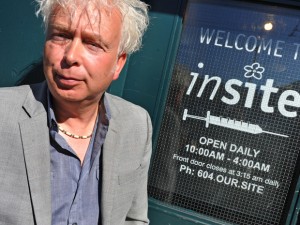Over the summer of 2013, I had one of the most exceptional experiences at an interdisciplinary health science course about how to interact with clients with HIV/AIDS.
The course was a combination of lectures regarding medical, nursing, dietetic, social work, public health, and dental aspects for people living with HIV/AIDS as well as community rotations at various sites. It also incorporated a Problem-Based-Learning (PBL) team assignment in which student from the listed healthcare backgrounds congregated as a team and discussed about given situations of a Native woman with an addiction problem. All the lectures increased my professionalism by increasing my understanding of different healthcare professions, which would help me to refer my clients for appropriate cares in the futures. The community rotations also helped to build my professionalism by increasing the true impact of social determinants of health on lifestyle and health status of people. I got a chance to visit single-room-occupancy hotels, an addiction-specialized pharmacy, and an addiction in Vancouver Downtown Eastside. From those visits, I could directly interact with the people who are living in sheer poverties and addiction problems, which helped to gain their perspectives of their situations and rationales why they were in those situations (majorly social and upbringing issues). Learning how social and upbringing issues impacted other aspects of social determinants of health, especially their choices for lifestyle such as drug/alcohol addiction, changed my conceptions of people living in Downtown Eastside and with HIV/AIDS. These experiences broke down my prejudices and misconceptions of those living with various physical, mental, and social difficulties which would help me to grow as a healthcare professional who could better connect with those individuals and better cater customized care for them.

